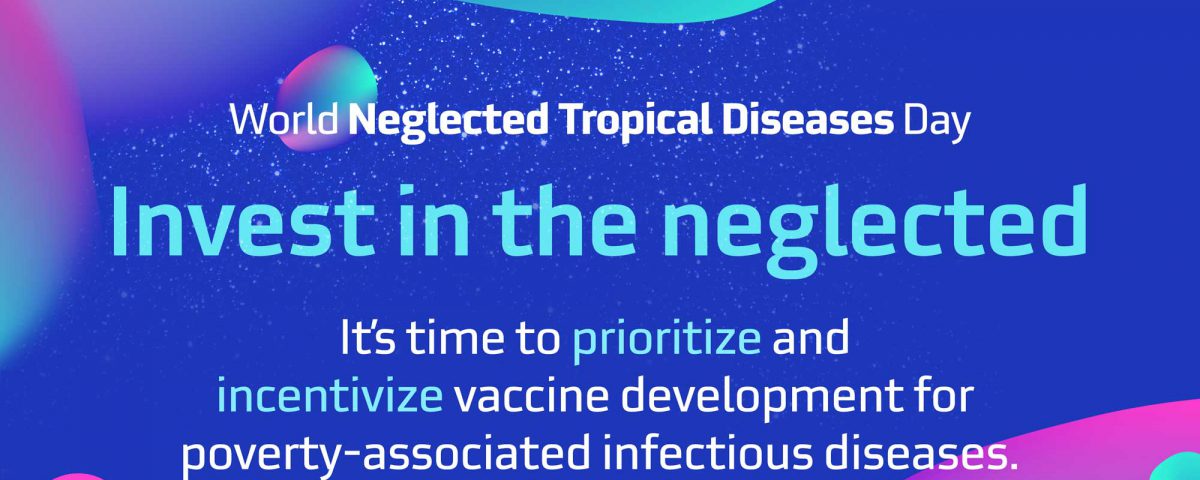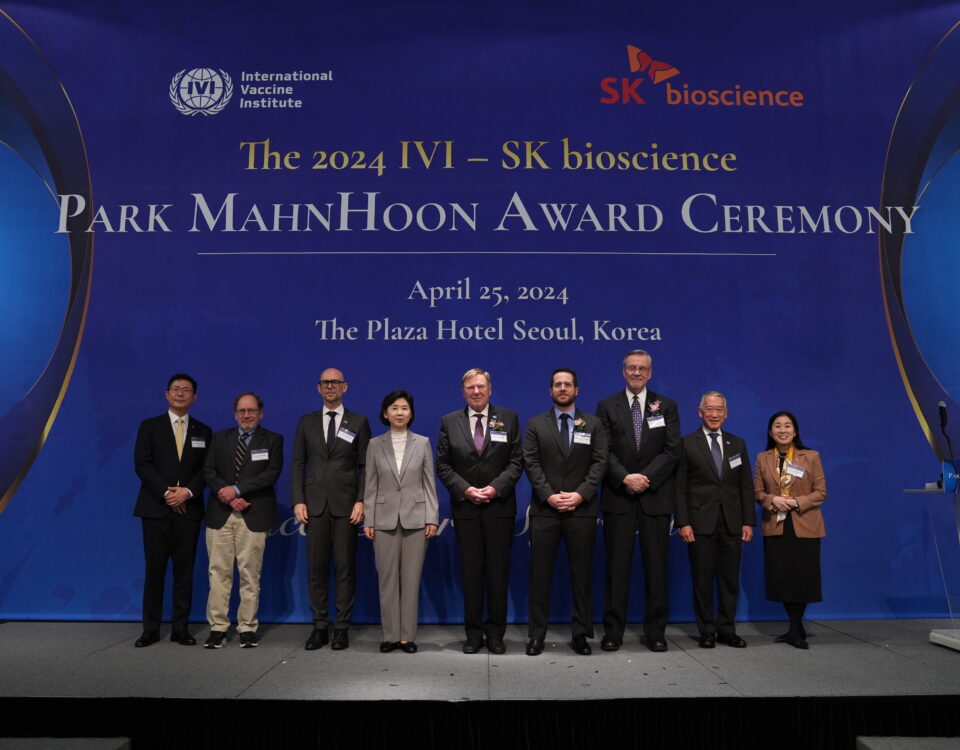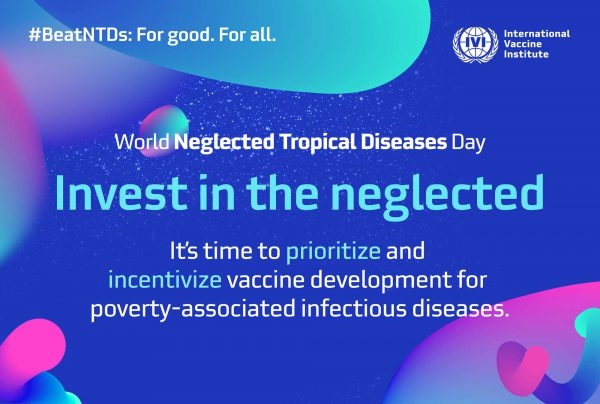
As we globally recognize the first ever World Neglected Tropical Diseases Day, we take this opportunity to specifically raise awareness around Schistosomiasis, a devastating Neglected Tropical Disease (NTD) endemic in 78 low- and middle-income countries.
What is schistosomiasis?
Schistosomiasis is a poverty-associated disease caused by parasitic worms. The disease is spread when people come into contact with infested waters during work-related and recreational activities. It is a major global public health problem with the highest disease burden in sub-Saharan Africa. Schistosomiasis is a significant cause of morbidity for an estimated 200 million people, with an additional 779 million individuals at risk for infection. Of deaths caused by parasites, schistosomiasis ranks second only to Plasmodium falciparum malaria, killing ca. 280,000 people annually in sub-Saharan Africa alone.
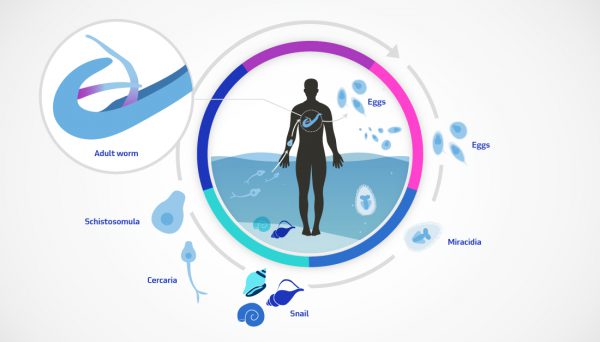
High rate of re-infection makes treatment challenging
Disease control relies primarily on taking the anti-worm drug praziquantel (PZQ) to treat the infection. The challenge is that PZQ does not completely eliminate the parasite and re-infection after treatment is common, making repeated treatment necessary and mass treatment programs unsustainable. An alternative is reducing the number of snail hosts, but this is a challenging, labor-intensive and costly method as well.
-
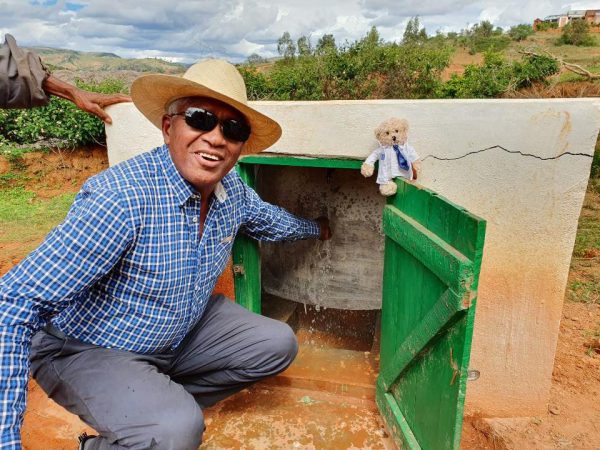
-
A cistern water canal system for safe water access in Andina, Madagascar featuring Professor Raphael Rakotozandrindrainy, our collaborating Principal Investigator from the University of Antananarivo, and IVI Science Sam. Credit: Andrea Haselbeck, IVI
-
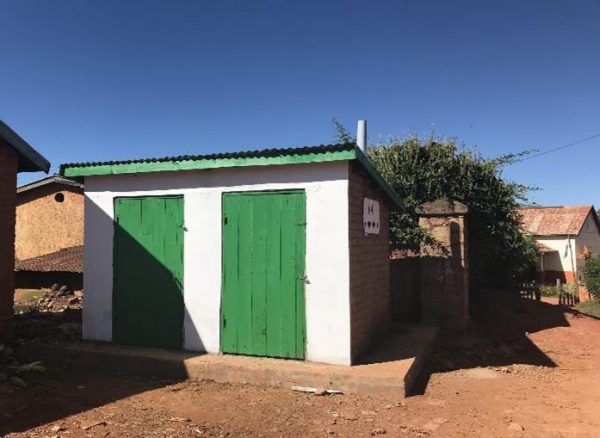
-
New toilets at a market place in Ambositra, Madagascar to support WASH activities through the SOMA project.
-
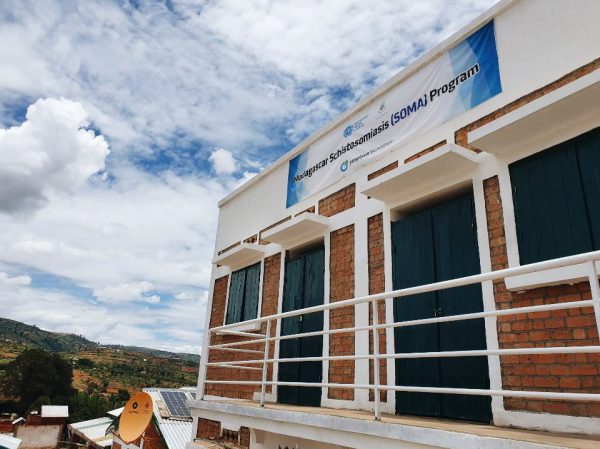
-
Through our Schistosomiasis in Madagascar (SOMA) project, we’ve constructed a state-of-the-art cistern water canal system for safe water access in two rural villages, and built 12 toilet facilities across public schools, market places, and community centers as part of a WASH campaign in 2019.
-
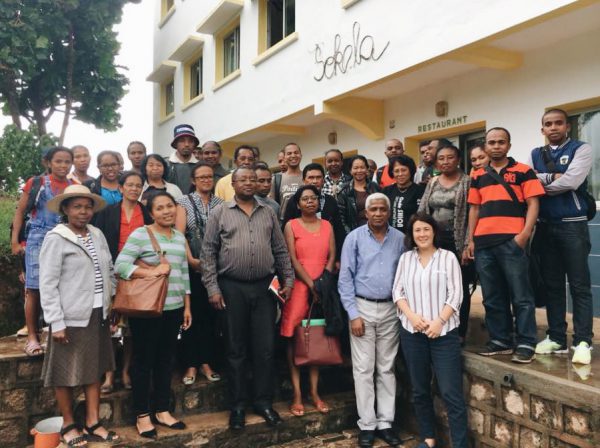
-
Through our Vaccine against Schistosomiasis for Africa (VASA) project, we are preparing clinical sites to assess the safety and immunogenicity of the schistosomiasis vaccine candidate SchistoShield® in a Phase I clinical study in healthy adults in Africa.
We need an effective and affordable vaccine to complement treatment programs
IVI is approaching schistosomiasis control in Madagascar through treatment, education, and prevention, including mass PZQ administration and “water, sanitation & hygiene” (WASH) activities, as well as accelerating a promising vaccine candidate, SchistoShield®, soon in a Phase I clinical study.
Schistosomiasis in Madagascar (SOMA)
Through SOMA, or, IVI’s Schistosomiasis in Madagascar project, we’ve constructed a state-of-the-art cistern water canal system for safe water access in two rural villages, and built 12 toilet facilities across public schools, market places, and community centers as part of a WASH campaign. These construction efforts were followed by schistosomiasis prevention education to local communities. SOMA was generously supported by the Yanghyun Foundation.
Vaccine against Schistosomiasis for Africa (VASA)
Through VASA, or, IVI’s Vaccine against Schistosomiasis for Africa project, we’ve been preparing sites by understanding the prevalence and intensity of the disease to assess the safety and immunogenicity of the schistosomiasis vaccine candidate SchistoShield® in a Phase I clinical study in healthy adults in Africa. Capacity-building efforts at clinical sites and equipping laboratories in rural areas are in progress while we conduct cost-of-illness and cost-effectiveness studies for schistosomiasis vaccine introduction in these regions. In addition to these activities, a key objective of VASA is to foster a global consortium on advancing research on schistosomiasis disease burden and vaccines. VASA is generously supported by the Horizon 2020 Framework Programme of the European Union.


